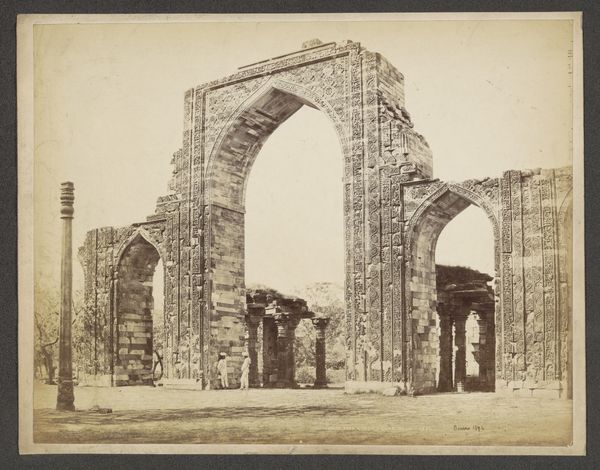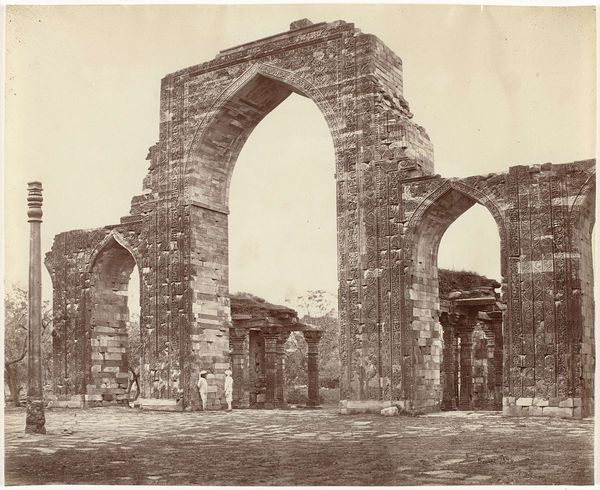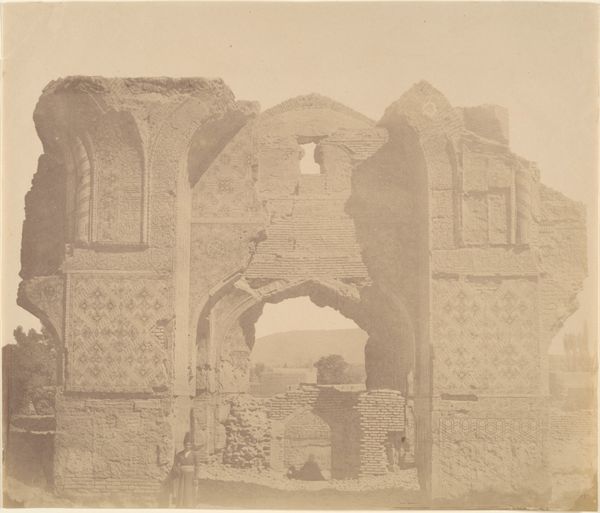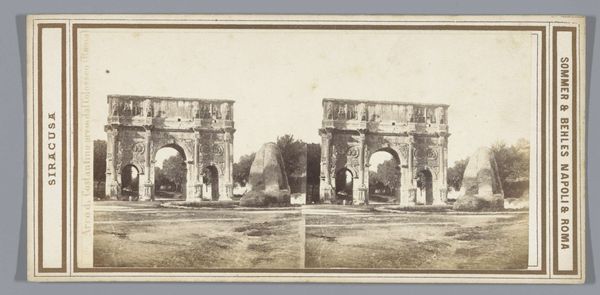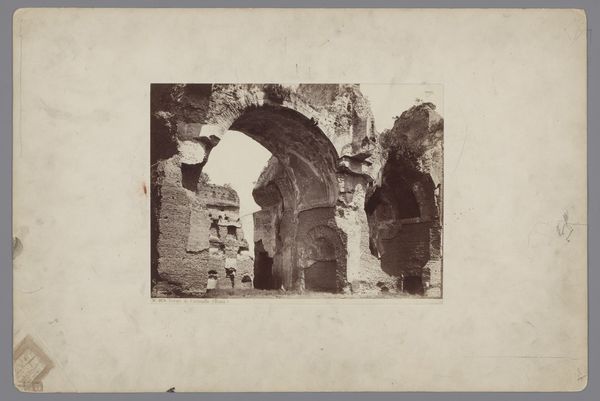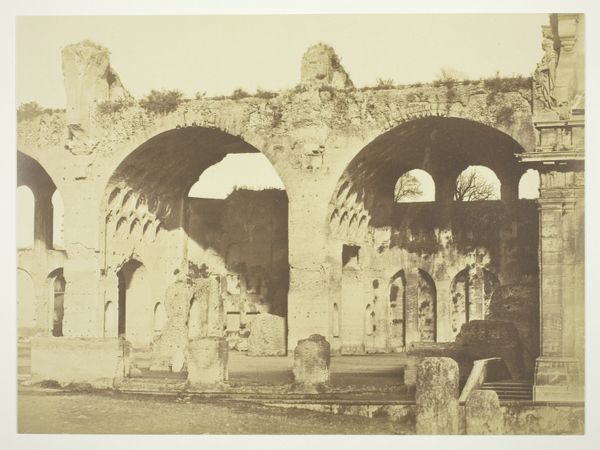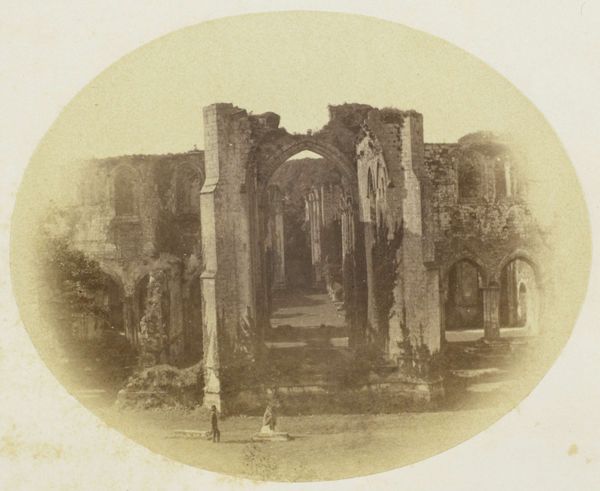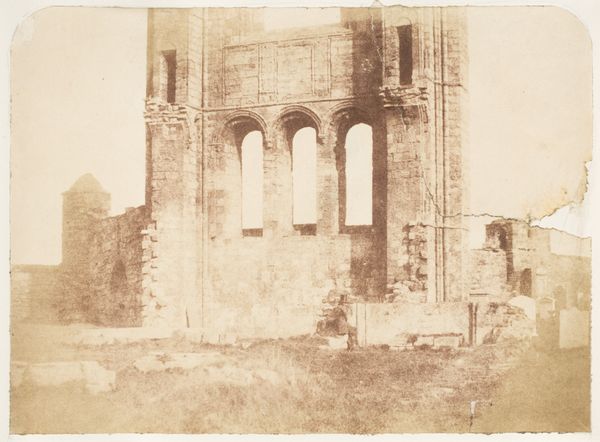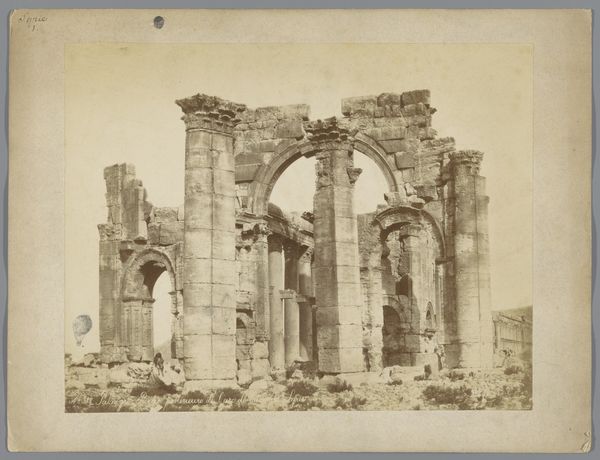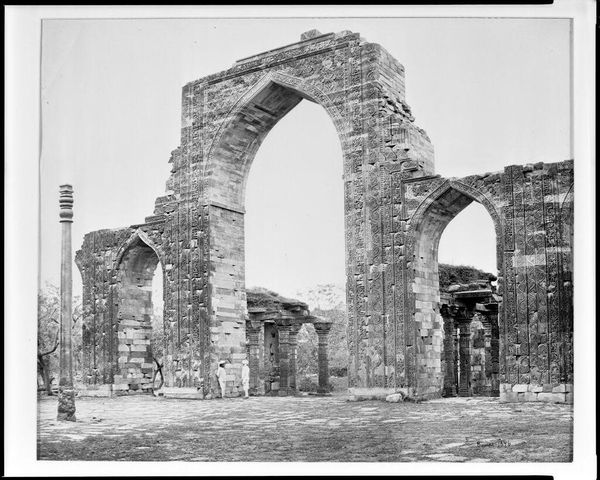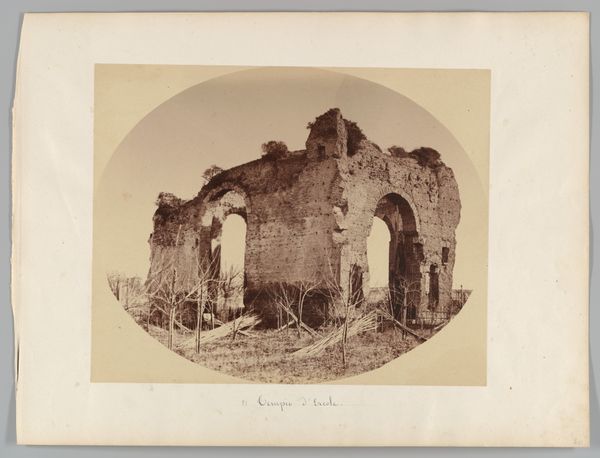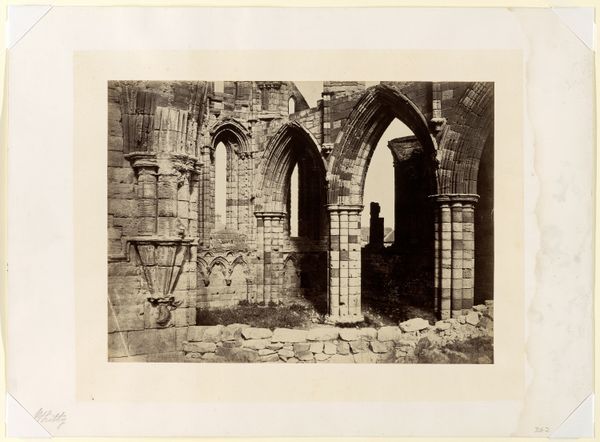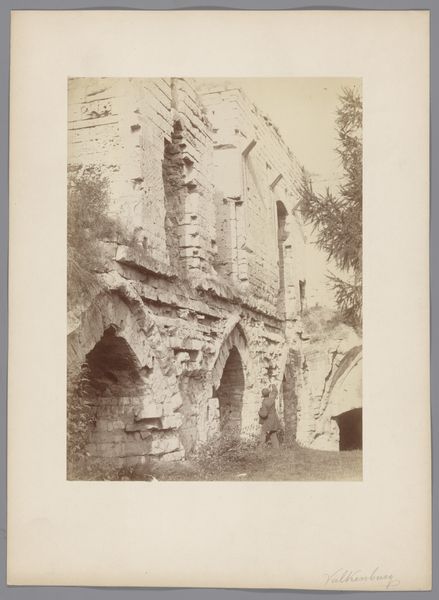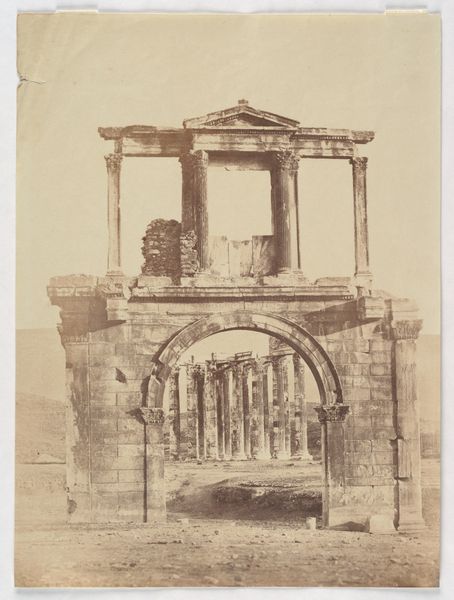
IJzeren Pilaar van Delhi en restanten van de Quwwat-ul-Islammoskee, Delhi 1862 - 1864
0:00
0:00
print, photography
# print
#
sculpture
#
landscape
#
photography
#
ancient-mediterranean
#
cityscape
#
islamic-art
Dimensions: height 254 mm, width 362 mm
Copyright: Rijks Museum: Open Domain
This is a photograph by Shepherd and Robertson of the Iron Pillar of Delhi and the remains of the Quwwat-ul-Islam mosque. In this image, the Iron Pillar stands as a symbol of India’s deep history, predating the Islamic structures around it. The mosque itself, built in the late 12th century, was among the first mosques established in Delhi, signifying the onset of Islamic rule in India. The photograph captures a moment of cultural and political transition, where remnants of pre-Islamic India coexist, and are literally incorporated into, new structures of power. The presence of local people in the foreground also hints at the social complexities of the time. Understanding this image requires an awareness of Indian history, Islamic art and architecture, and the social dynamics of colonial India. Historical texts, architectural studies, and postcolonial analyses provide a wealth of resources for further exploration. Ultimately, this photograph invites us to reflect on the layers of history that shape our present.
Comments
No comments
Be the first to comment and join the conversation on the ultimate creative platform.
